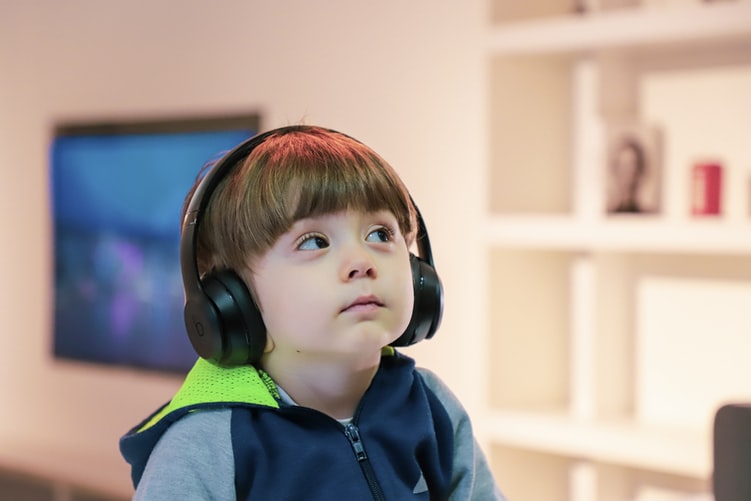"See a child differently, you see a different child."
-Dr. Stuart Shanker
-Dr. Stuart Shanker
Frequently Asked Questions
How do I book an appointment?
Booking an appointment is quick and easy at Spinnaker Psychological Services. Individuals may contact Spinnaker Psychological Services directly to arrange an appointment. A doctor referral is not needed to initiate services at our clinic. Don't worry if you are not sure what specific service you need; we will listen to your questions and help you decide what will be most helpful for you and your child. As there is often more need than availability of services, there may be a waiting list. We will let you know how long you may wait, but are also happy to provide consultation and brief support while you wait, and/or direct you to another support if appropriate.
Simply email us at [email protected]. One of our team members will contact you to ask a few simple questions and answer your queries regarding next steps, wonderings related to billing and insurance, wait-list or any other initial questions that you may have and schedule an initial appointment.
What is a psychologist versus a psychometrist?
Psychologists and psychological associates are regulated health professionals and are registered with the College of Psychologists of Ontario. Psychometrists receive extensive training in psychological testing and interviewing, but are not registered and therefore work under the clinical supervision of a registered provider.
Psychological service providers use clinical interviewing, behavioural observation, and psychometric tests to help identify issues and to work on solutions. Psychological service providers are the only professionals qualified to use certain kinds of psychometric tests to assess intelligence, as well as emotional and behavioural problems. Psychologists and psychological associates who are trained in clinical psychology, along with physicians and psychiatrists, are the only professionals who can communicate a psychological diagnosis. Psychologists and psychometrists do not prescribe medication.
Psychologists and psychological associates are regulated health professionals and are registered with the College of Psychologists of Ontario. Psychometrists receive extensive training in psychological testing and interviewing, but are not registered and therefore work under the clinical supervision of a registered provider.
Psychological service providers use clinical interviewing, behavioural observation, and psychometric tests to help identify issues and to work on solutions. Psychological service providers are the only professionals qualified to use certain kinds of psychometric tests to assess intelligence, as well as emotional and behavioural problems. Psychologists and psychological associates who are trained in clinical psychology, along with physicians and psychiatrists, are the only professionals who can communicate a psychological diagnosis. Psychologists and psychometrists do not prescribe medication.

What is a consultation versus an assessment?
Why a Consultation?
If you have concerns or questions about your child's development, learning, or behaviour and are not sure how to proceed, a Consultation might be the best way to start. You will be interviewed to hear more about what you are concerned about and to gain some information about how your child is doing. Your child may or may not need to be involved in this step. Depending on what is learned, your concerns might be allayed and your questions put in context of a child simply growing and learning and doing the best they can. Or you might be directed as to what might be the next step to take, perhaps consulting with a Pediatrician, Speech and Language Pathologist, or Occupational Therapist, or what support you might ask about at your child's school, and advised as to what questions to ask them. If a bit more information is needed to best help you at this time, you might be asked to complete a rating scale, or your child might be observed briefly. Your consultant will discuss with you what her initial thoughts and recommendations are, and can get back to you with any follow-up needed. If further screening is felt helpful, this will be discussed as well. Consultations are primarily completed by the psychometrist and she will review with the supervising psychologist regarding any clinical wonderings. A consultation is not psychotherapy. If therapy or counselling seems advised, for you or for your child, then this might be suggested and some directions given as to what type of therapy and how to go about finding this.
Why an Assessment?
If you are looking for how to understand your child's developmental level, learning profile, wondering about a learning, social, developmental, attention diagnosis, or have concerns about your child's mood or behaviour, an assessment is a thorough evaluation that can be extremely beneficial to help you explore and answer these questions. If you know what type of assessment you are looking for, we will describe this thoroughly on your first visit. But don't worry if you are not sure; we can discuss your questions and concerns and suggest the best fit for you. An assessment is completed by the psychologist or the psychometrist under supervision of the psychologist. An assessment may result in a diagnosis or rule out a diagnosis; either way, an assessment will provide a thorough formulation of your child's unique profile.
Why a Consultation?
If you have concerns or questions about your child's development, learning, or behaviour and are not sure how to proceed, a Consultation might be the best way to start. You will be interviewed to hear more about what you are concerned about and to gain some information about how your child is doing. Your child may or may not need to be involved in this step. Depending on what is learned, your concerns might be allayed and your questions put in context of a child simply growing and learning and doing the best they can. Or you might be directed as to what might be the next step to take, perhaps consulting with a Pediatrician, Speech and Language Pathologist, or Occupational Therapist, or what support you might ask about at your child's school, and advised as to what questions to ask them. If a bit more information is needed to best help you at this time, you might be asked to complete a rating scale, or your child might be observed briefly. Your consultant will discuss with you what her initial thoughts and recommendations are, and can get back to you with any follow-up needed. If further screening is felt helpful, this will be discussed as well. Consultations are primarily completed by the psychometrist and she will review with the supervising psychologist regarding any clinical wonderings. A consultation is not psychotherapy. If therapy or counselling seems advised, for you or for your child, then this might be suggested and some directions given as to what type of therapy and how to go about finding this.
Why an Assessment?
If you are looking for how to understand your child's developmental level, learning profile, wondering about a learning, social, developmental, attention diagnosis, or have concerns about your child's mood or behaviour, an assessment is a thorough evaluation that can be extremely beneficial to help you explore and answer these questions. If you know what type of assessment you are looking for, we will describe this thoroughly on your first visit. But don't worry if you are not sure; we can discuss your questions and concerns and suggest the best fit for you. An assessment is completed by the psychologist or the psychometrist under supervision of the psychologist. An assessment may result in a diagnosis or rule out a diagnosis; either way, an assessment will provide a thorough formulation of your child's unique profile.
How should I prepare for my appointment?
If you are coming for an initial Consultation or an initial interview for an assessment, come a few minutes early so you have time to complete our Intake and Information form for new clients. If you would like to bring notes with your specific questions, or paperwork with details you want to remember (e.g., report cards, doctors notes) that is fine, but you do not have to. Our initial interview will guide you in sharing the information that is needed.
If you are coming for an initial Consultation or an initial interview for an assessment, come a few minutes early so you have time to complete our Intake and Information form for new clients. If you would like to bring notes with your specific questions, or paperwork with details you want to remember (e.g., report cards, doctors notes) that is fine, but you do not have to. Our initial interview will guide you in sharing the information that is needed.
What should I expect for my first appointment?
The goal of the first appointment is to understand your current concern(s), review our clinic's policies, and determine whether the services that we provide will be a good fit for you and your family. You will work collaboratively with a team member and will have the opportunity to explain your child's history and current concerns, in order to tailor an individual plan for your specific needs. If you have any wonderings, please do not hesitate to ask; we will be happy to answer your questions during your initial appointment and any time throughout your work with us. Once you have had a chance to hear more about what will be involved and have had a chance to ask questions, we will attain your consent and proceed with setting up next steps or appointments. At any time, however, you may withdraw your consent, if you no longer feel the service is right for you or your child.
The goal of the first appointment is to understand your current concern(s), review our clinic's policies, and determine whether the services that we provide will be a good fit for you and your family. You will work collaboratively with a team member and will have the opportunity to explain your child's history and current concerns, in order to tailor an individual plan for your specific needs. If you have any wonderings, please do not hesitate to ask; we will be happy to answer your questions during your initial appointment and any time throughout your work with us. Once you have had a chance to hear more about what will be involved and have had a chance to ask questions, we will attain your consent and proceed with setting up next steps or appointments. At any time, however, you may withdraw your consent, if you no longer feel the service is right for you or your child.
What if my child is multi-cultural or multi-lingual or has different abilities?
This is a good question. Many aspects of our teaching and testing tools may not seem 'fair' or equitable to a child's life experiences, either because they were born in a different country or English is not their first language, or because they developed with different abilities or exposed to different experiences (e.g., cerebral palsy, visual or aural disability, significant adverse childhood experiences). We will endeavour to recognize each individual's unique lived experiences, pay attention to the limitations of our own perspectives and tests that we use to understand the whole child, and preference an understanding that takes these differences into account. The standardized tests we may use in assessment are created through use of norming groups which include diverse groups to parallel the Canadian or United States population (depending on the measure used); however, the content of the tests was developed from the perspective of the dominant culture (i.e., white/Western European, able-bodied), and may not reflect the skills and abilities of children and youth from other cultures, backgrounds and abilities. Consequently, we know that results should not be taken out of the context of an individual’s functioning across multiple domains and within multiple environments, their immediate family and social context, and the greater socio-political contexts in which they live, and we will consider these differences in our interpretation and formulation of the assessment. We will be sure to communicate this clearly with you, and will value learning from you as well.
How should I prepare my child for appointments?
When you bring your child for an assessment appointment, we recommend informing your child that they will be coming to work with someone to help them understand how they learn and do things, to better understand how they are doing at school and with their friends and family. If they are curious to know more, let them know they will do a bunch of activities, some of them easy, some of them fun, and some of them harder, but it's not a 'test' like in school and they cannot fail! The activities will help to learn more about how their brains and feelings work best for them, to help them and their supporters (caregivers/ teachers) do and feel better. We will take breaks as we need to, and we might take one visit or a few visits.
Please ensure that your child is well rested and has had a meal before their assessment appointments. If needed, please fell free to bring a snack or bottle of water for your child. If your child usually takes medication, please continue with this routine unless we have discussed otherwise.
How is information or results from a service shared with me and how do I share it with my child?
Throughout the assessment process, you will have the opportunity to ask any questions you have along the way. During testing, your child can also ask questions, and we often do reflect how they are doing to give them a sense of what we are learning about. At the end of the process, your psychological service provider(s) will meet with you (in person or virtually) for a feedback session, to share the results, including describing the various tests and activities, how they did and what this means relative to other children of the same age, and the formulation of strengths and challenges, and if appropriate, a diagnostic profile, and most importantly recommendations to support your child and family based on these results. You will have plenty of opportunity to ask questions and ensure you fully understand the results and implications. You can invite anyone you wish to hear the results with you if you would benefit from that support.
Older youth often attend the feedback session along with their caregiver. Often families will choose to share results with their child. We are happy to advise you on how and when to do this in a developmentally appropriate way. We are also happy to set a separate consultation time with your child to review results and labels and what this means for them, to help demystify and destigmatize how they may have been feeling about themselves, and empower them to take ownership of their individual uniqueness and what this might mean for them!
A copy of the report outlining the results will be sent to you to review and to share with whom you feel it will be most helpful. With your consent, a copy of the report can be shared by us with anyone else of your choosing as well, or you may wish to do so yourself. You may also request an additional meeting to share with your child's school or other care partners.
This is a good question. Many aspects of our teaching and testing tools may not seem 'fair' or equitable to a child's life experiences, either because they were born in a different country or English is not their first language, or because they developed with different abilities or exposed to different experiences (e.g., cerebral palsy, visual or aural disability, significant adverse childhood experiences). We will endeavour to recognize each individual's unique lived experiences, pay attention to the limitations of our own perspectives and tests that we use to understand the whole child, and preference an understanding that takes these differences into account. The standardized tests we may use in assessment are created through use of norming groups which include diverse groups to parallel the Canadian or United States population (depending on the measure used); however, the content of the tests was developed from the perspective of the dominant culture (i.e., white/Western European, able-bodied), and may not reflect the skills and abilities of children and youth from other cultures, backgrounds and abilities. Consequently, we know that results should not be taken out of the context of an individual’s functioning across multiple domains and within multiple environments, their immediate family and social context, and the greater socio-political contexts in which they live, and we will consider these differences in our interpretation and formulation of the assessment. We will be sure to communicate this clearly with you, and will value learning from you as well.
How should I prepare my child for appointments?
When you bring your child for an assessment appointment, we recommend informing your child that they will be coming to work with someone to help them understand how they learn and do things, to better understand how they are doing at school and with their friends and family. If they are curious to know more, let them know they will do a bunch of activities, some of them easy, some of them fun, and some of them harder, but it's not a 'test' like in school and they cannot fail! The activities will help to learn more about how their brains and feelings work best for them, to help them and their supporters (caregivers/ teachers) do and feel better. We will take breaks as we need to, and we might take one visit or a few visits.
Please ensure that your child is well rested and has had a meal before their assessment appointments. If needed, please fell free to bring a snack or bottle of water for your child. If your child usually takes medication, please continue with this routine unless we have discussed otherwise.
How is information or results from a service shared with me and how do I share it with my child?
Throughout the assessment process, you will have the opportunity to ask any questions you have along the way. During testing, your child can also ask questions, and we often do reflect how they are doing to give them a sense of what we are learning about. At the end of the process, your psychological service provider(s) will meet with you (in person or virtually) for a feedback session, to share the results, including describing the various tests and activities, how they did and what this means relative to other children of the same age, and the formulation of strengths and challenges, and if appropriate, a diagnostic profile, and most importantly recommendations to support your child and family based on these results. You will have plenty of opportunity to ask questions and ensure you fully understand the results and implications. You can invite anyone you wish to hear the results with you if you would benefit from that support.
Older youth often attend the feedback session along with their caregiver. Often families will choose to share results with their child. We are happy to advise you on how and when to do this in a developmentally appropriate way. We are also happy to set a separate consultation time with your child to review results and labels and what this means for them, to help demystify and destigmatize how they may have been feeling about themselves, and empower them to take ownership of their individual uniqueness and what this might mean for them!
A copy of the report outlining the results will be sent to you to review and to share with whom you feel it will be most helpful. With your consent, a copy of the report can be shared by us with anyone else of your choosing as well, or you may wish to do so yourself. You may also request an additional meeting to share with your child's school or other care partners.
How is my information kept private?
The assessment is shared with the parents/guardians. Written consent is needed to release the information to anyone else. All information is kept private and confidential. There are some limits to confidentiality for all regulated health providers where the law requires us to share information in order to keep everyone safe; these would be explained to you before you consent. Your privacy and that of your child is very important to us and as regulated health professionals we adhere strictly to policies and procedures set out by our professional associations, all of which will be explained thoroughly to you prior to proceeding.
The assessment is shared with the parents/guardians. Written consent is needed to release the information to anyone else. All information is kept private and confidential. There are some limits to confidentiality for all regulated health providers where the law requires us to share information in order to keep everyone safe; these would be explained to you before you consent. Your privacy and that of your child is very important to us and as regulated health professionals we adhere strictly to policies and procedures set out by our professional associations, all of which will be explained thoroughly to you prior to proceeding.
Where can I go if my child is in crisis and I cannot wait for an appointment?
If you have concerns about your child's immediate safety, or the safety of others around your child, please call 911 or go to your local hospital. If you feel your child or family are in crisis, please contact Here 24/7 - 1-844-437-3247 (at anytime).
If you have concerns about your child's immediate safety, or the safety of others around your child, please call 911 or go to your local hospital. If you feel your child or family are in crisis, please contact Here 24/7 - 1-844-437-3247 (at anytime).
Please let us know if you or your child have any other questions we have not answered here or elsewhere on the website, and we are happy to help. Just email us at [email protected].
"The world needs different kinds of minds to work together."
-Temple Grandin
-Temple Grandin
Photos courtesy of Melissa Askew, Julianne Lieberman, Sandeep KrYah, Benjamin Elliot, Charlene Gracia,Hannah Rodrigo - Unsplash








